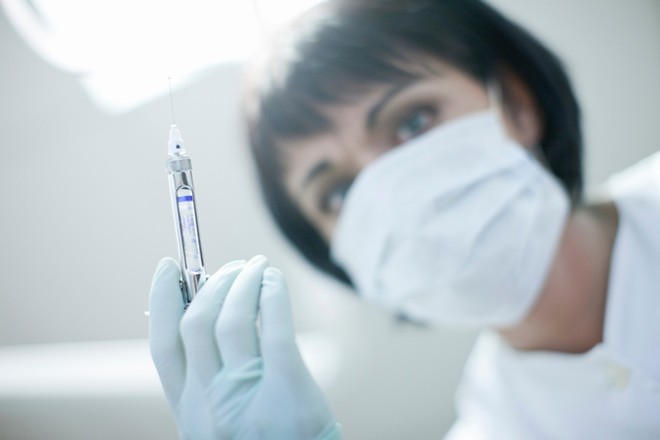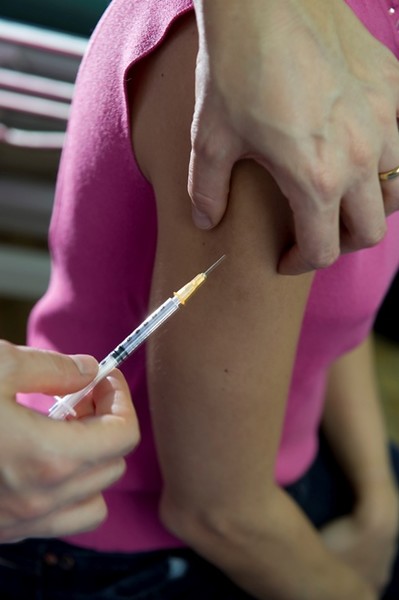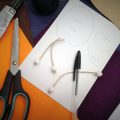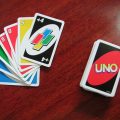It would seem that a simple medical procedure,which is done day-to-day in polyclinics and hospitals. Without an anesthetic injection, today there is not a single visit to a dentist or a cosmetologist, which is to say about small surgeries! Lidocaine is the most popular local anesthetic that is used by physicians. But not all people are aware that some people have acute intolerance to this drug. That's why from time to time in the press there are news from the category "The child died in the chair of the dentist." How to avoid the tragedy? We are sorting out together with the expert, pediatrician Yaroslavova Matveeva. Photo: GettyImages
Photo: GettyImages
Know your enemy by sight
Anaphylactic shock is an acute allergic reaction.a reaction that occurs when an allergen is reintroduced. It develops at lightning speed. The person literally swells up before your eyes, a rash and severe swelling appear, and it becomes difficult for him to breathe. The person suffocates. If the doctor does not react just as quickly, the patient may die. In such cases, the ambulance usually arrives too late, even if it is rushing at full speed. Anaphylactic shock can be provoked by any substance that enters the human body: food, medicine, insect and animal poisons. Most often, the reaction occurs to medications - antibiotics, hormones, enzyme preparations, anesthetics and vaccines. In fact, a person is at risk every day. Almost any treatment can end badly, because it is difficult to predict anaphylaxis. But it is possible! Our expert claims that if a person is interested in his heredity, it is much easier to avoid trouble. Yaroslava Matveeva: – Most often, any allergic reaction ishereditary nature. Before deciding on any injection, we should find out from our closest relatives whether we have ever had a reaction to antibiotics, painkillers, vitamins or any other medications. If not, and your relatives have not had cases of anaphylaxis, the chances of getting into such a situation are small.
– Most often, any allergic reaction ishereditary nature. Before deciding on any injection, we should find out from our closest relatives whether we have ever had a reaction to antibiotics, painkillers, vitamins or any other medications. If not, and your relatives have not had cases of anaphylaxis, the chances of getting into such a situation are small.
Trust but check
After any procedure with injections or shotsa conscientious doctor will definitely ask you to stay in the hospital for half an hour. This is necessary precisely to have time to save you in case of an allergic reaction. Therefore, do not rush home, leaving the cosmetologist after mesotherapy, and especially do not take the child away from the medical center after vaccination. Even if he cries and cannot calm down. - Anaphylactic shock or immediatean allergic reaction develops in the first 30 minutes. At this time, it is better to stay in the clinic after any manipulation: vaccination, dropper, intramuscular injection, cosmetology procedure, etc. After that, you can go home with the confidence that the reaction of an immediate type does not threaten you. If it is not a question of repeated, but of the first contact of the body with the drug, the allergy may develop 2-3 hours after the injection, so do not leave children unattended. For example, do not send a schoolboy one home after vaccination.
- Anaphylactic shock or immediatean allergic reaction develops in the first 30 minutes. At this time, it is better to stay in the clinic after any manipulation: vaccination, dropper, intramuscular injection, cosmetology procedure, etc. After that, you can go home with the confidence that the reaction of an immediate type does not threaten you. If it is not a question of repeated, but of the first contact of the body with the drug, the allergy may develop 2-3 hours after the injection, so do not leave children unattended. For example, do not send a schoolboy one home after vaccination. Photo: GettyImages
Photo: GettyImages
Demand the test!
Let's return to our story with the Omsk girl.She was not stung by a wasp, she did not eat exotic seafood at home, which could have prevented the ambulance from arriving in time. The schoolgirl was in hospital, where she received the fatal injection. Perhaps they did not conduct a simple allergy test before the injection. – Before administering the drug for the first time, you need toconduct an allergy test. We drip the drug onto the inside of the elbow, or behind the ear - where the skin is thin. Then we observe the skin reaction for 20-30 minutes. If redness, spots or blisters appear, then this is regarded as an allergic reaction. In this case, the drug is replaced with another one, tested according to the same principle. It happens that the drug is vital and cannot be replaced with anything, then we administer it very carefully, having an anti-shock kit at hand. Whether there was such a first aid kit in the office where the girl died is a question. Whether she was tested is also a question. I just don’t want to believe that the child was given the drug at random - as luck would have it. But remember, did they conduct such tests on you yourself or did they limit themselves to a standard survey? While the prosecutor's office is sorting out the situation, let's find out what is included in the doctors' arsenal for emergency care during anaphylaxis.
– Before administering the drug for the first time, you need toconduct an allergy test. We drip the drug onto the inside of the elbow, or behind the ear - where the skin is thin. Then we observe the skin reaction for 20-30 minutes. If redness, spots or blisters appear, then this is regarded as an allergic reaction. In this case, the drug is replaced with another one, tested according to the same principle. It happens that the drug is vital and cannot be replaced with anything, then we administer it very carefully, having an anti-shock kit at hand. Whether there was such a first aid kit in the office where the girl died is a question. Whether she was tested is also a question. I just don’t want to believe that the child was given the drug at random - as luck would have it. But remember, did they conduct such tests on you yourself or did they limit themselves to a standard survey? While the prosecutor's office is sorting out the situation, let's find out what is included in the doctors' arsenal for emergency care during anaphylaxis.
Anti-shock medicine cabinet
According to the Order of the Ministry of Health of Russia dated 20.12.2012 N 1079n "On approval of the standard of emergency medical care for anaphylactic shock", those rooms where procedures with skin damage are performed must have an anti-shock first aid kit. This applies to dental, procedural and cosmetology rooms. A tattoo parlor is no exception, so keep in mind! Such a first aid kit includes: 1. Adrenaline: it is used to stimulate the heart, and in cases where blood pressure drops. It is poured directly under the patient's tongue in the first seconds of anaphylactic shock. 2. Hormonal drugs to stop an allergic reaction: hydrocortisone or dexamethasone. Please note that the first is stored in the refrigerator, and the second - at room temperature. They are also administered in the first seconds, but intravenously. 3. A drug to relieve and block an already developed allergy, for example, suprastin - is administered intramuscularly. 4. Euphyllin in solution to eliminate bronchospasm. Important: together with adrenaline, it can cause severe forms of arrhythmia, so euphyllin is administered only under the supervision of a doctor. Auxiliary items: syringes, cotton wool and medical alcohol - should also be at hand. And remember: parents have every right to ask the medical staff before the procedure whether there is an anti-shock first aid kit in the office. You can even look into it and check whether all the drugs are in place and whether they have expired. There is no need to be embarrassed - life is more important! Read also:









